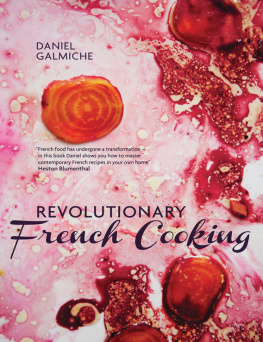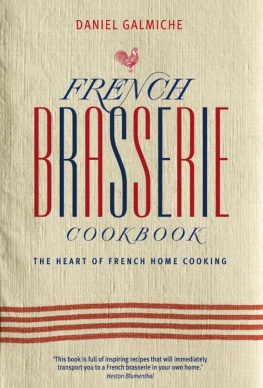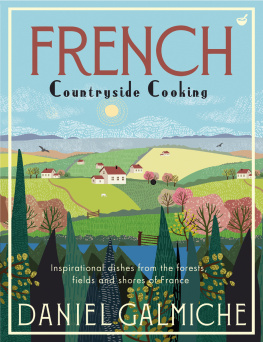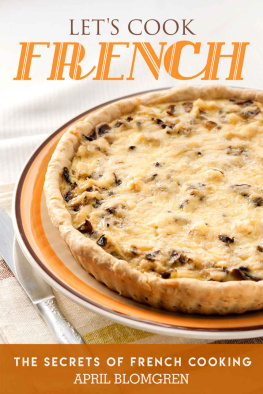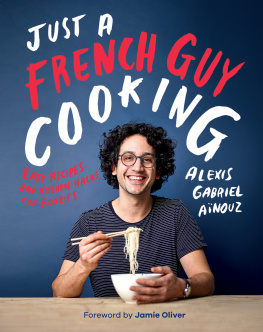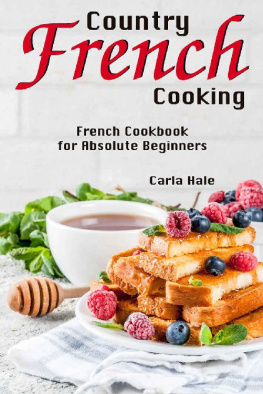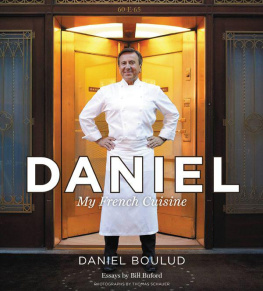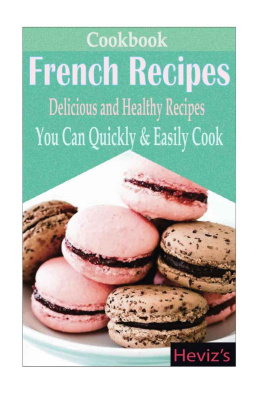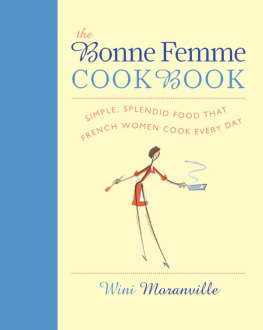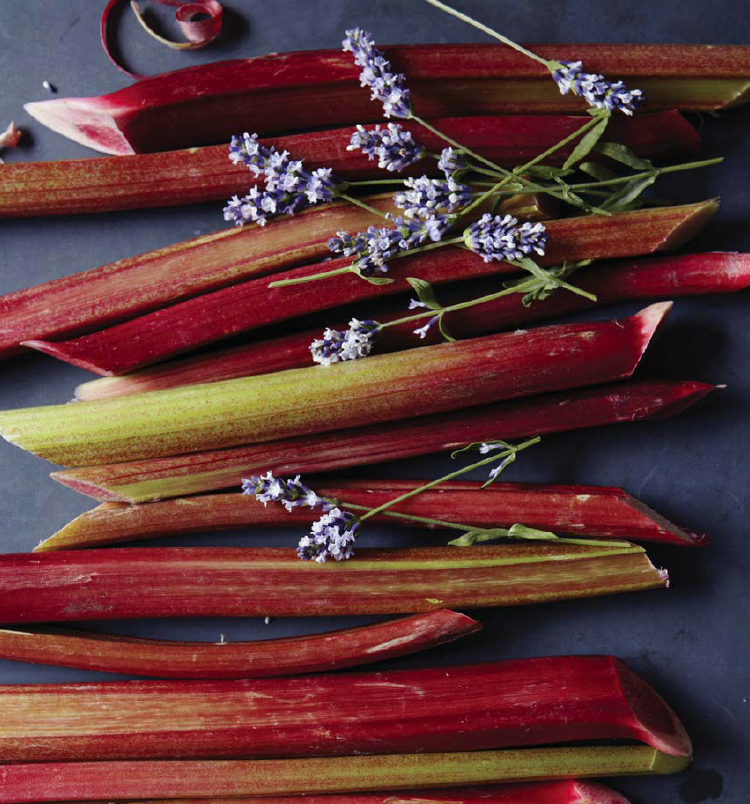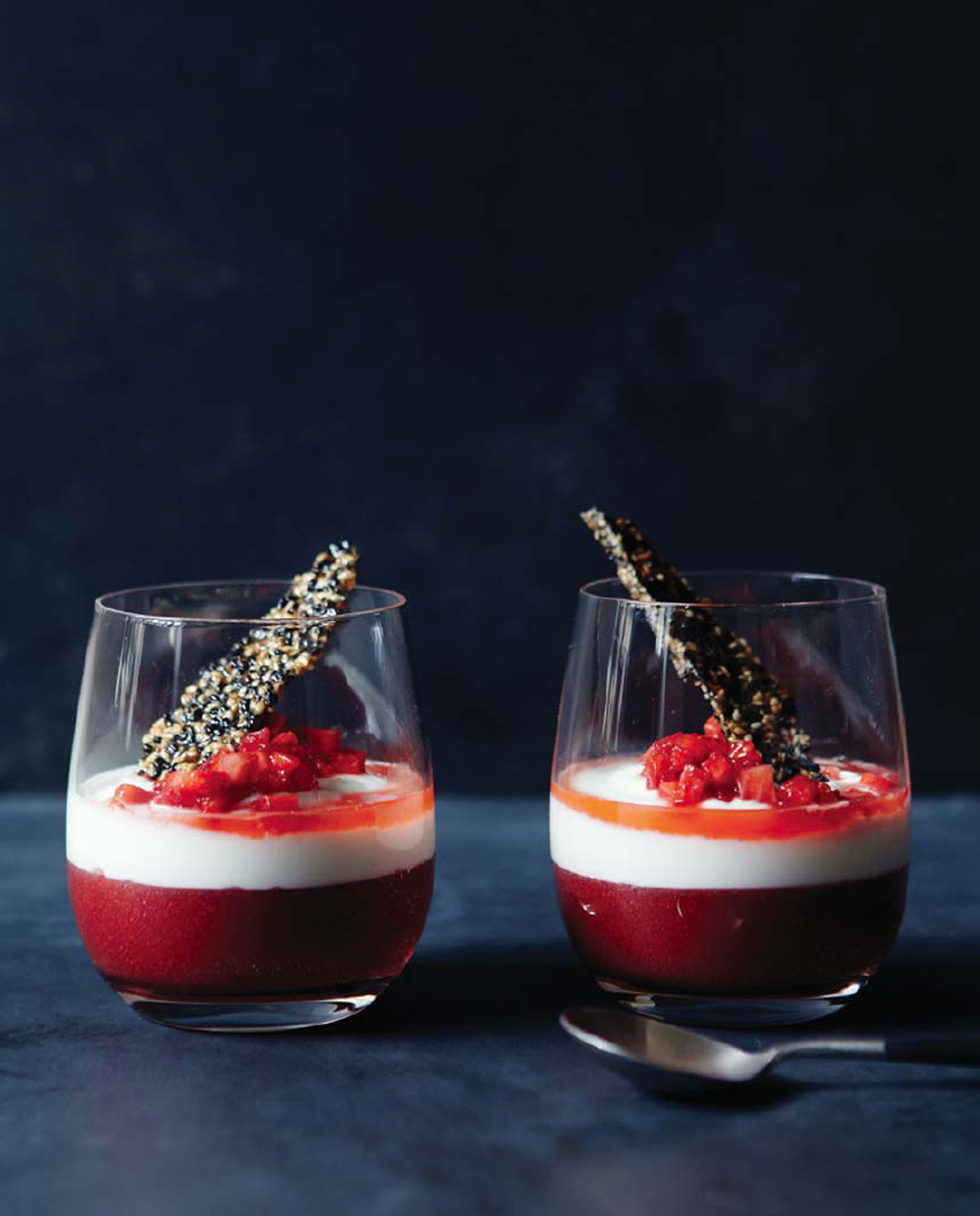REVOLUTIONARY
FRENCH COOKING
DANIEL GALMICHE
Dedication
This book is dedicated to two very special and important peoplemy wife, Claire, and my son, Antoine. Without them in my life, and their tremendous support, I would not be able to do what I do. They both love food, they have endless patience and they are fun to be with. They also understand what I do for living, which makes it so much easier for me when I am so often at work. So this cookbook is for you guys, with all my lovealways.
Foreword
Daniels new cookbook is well named, because were in the midst of a cooking revolution, especially here in Britain, where Daniel and I both cook. A few years ago some colleagues and I published a statement describing this revolution under the headings excellence, openness and integrity. Daniel, naturally, has categorized it under libert, galit and fraternit, but he identifies many of the same characteristics as typical of modern cuisine: respect for both tradition and innovation; enthusiasm and curiosity about the whole gamut of ingredients; and a determination to pursue excellence, but also to demystify cooking.
Such sentiments are typical of Daniel. His cooking style is different from mine, but when I first met him I immediately recognized a kindred spiritwarm, energetic and completely caught up in the romance of cooking and the pleasures of the table. So, when he became head chef at Cliveden, which is just a short drive from the Fat Duck, we would meet up regularly for a coffee and a chat about every aspect of cuisine.
Sadly, the ever-increasing pressures on our time mean we arent able to do this any more. But in the pages that follow youll get a taste of what its like to hang out with Daniel, and experience his brilliant cooking and infectious enthusiasm for anything to do with food.
Vive la rvolution!
Heston Blumenthal
Contents
Introduction
I could almost have started this book with a story:
Once upon a time in Franche-Comt, a young boy was walking through the kitchen at his great-aunts house. Suddenly he stopped in his stride, looked up and shouted,
When I grow up, I want to be a cuisinier. He was five years old. At that time, nobody thought anything about it and life went on as usual. But, some time later
that young boy did, indeed, become a chef. And I am sure you know who I am talking about!
I have always enjoyed my profession and, after many years, I still love it. Its challenging, exciting and fun. It gives me the chance to work with some fabulous peoplededicated, knowledgable and hard-workingsome with considerable experience and others young and eager to learn and experiment, always keen to try new techniques, new produce, new ideas.
Back to my roots
But that is moving ahead. From as long ago as I can remember, I was surrounded by gourmands. Food was very important in our house and I learned all the time from my momfor I watched her constantly. Mom was passionate about food, always testing, asking me what I thought, or calling Dad to make him try this sauce or that new dish. She went to so much trouble to cook for all of us and was always totally focused. She hated it when something wasnt right, even to the point of starting again from scratch if it was for the Christmas dinner, or another special day, and she was not happy with the dish.
The style of cooking reflected the classic cuisine of France, but even more it followed the traditional style of Franche-Comt. All the time, we followed the seasons and enjoyed the freshest produce at its best. Dad used to hunt, so Mom cooked whatever was in season, with fresh vegetables from our garden and fruit from the orchard. To this day, my favorite dish is gibelotte de lapin, farm rabbit casserolealways a delight.
When I was fifteen, I went to catering college for a year, and after that I began a three-year apprenticeship to learn the skills of my craft. That was really hard work, with the long hours, strict discipline and so much to learn. You had to stay focused every moment, which was very tiring at times. But that is something that never changes in a good kitchen. Dedication, focus, discipline and passion are vital if you want to be a good chef, and if you want to be successful.
When I qualified, I clearly remember the first day I started work. It was in the Luxeuil-les-Bains Hotel, in Beausite. The chef just put three large boxes of spinach leaves in front of me, showed me how he wanted them prepared and off I went. And, Ive never looked back. I loved cooking from the start, even though it was toughlike cleaning the stove and replacing the coal early in the morning, in winter, when I was being punished for not coming up to scratch. Luckily for me, though, that was the last winter before the coal-fired stove was replaced with a modern version.
When I finally emerged into the culinary world of France, I was imbued with the classic principles of French cuisine and I applied them rigorously. I strove for perfection in everything and honed my skills and experience in restaurants in France, Britain, Singapore and Portugal, among other places. Having settled in Britain in 1986, I gained a Michelin star in four different restaurants, and then was finally appointed executive head chef at The Vineyard in 2009.
French brasserie cooking
If I felt very fortunate to have advanced my career to such a level, I felt even more so in 2010 when I was offered the opportunity to publish my first book. As soon as we set to work on my French Brasserie Cookbook, I knew exactly what I wanted the concept to be and what I wanted the recipes to look like. This book would represent my childhood memories of cooking: using the seasons, featuring local specialties, the grandmother way. I wanted it to be totally French, very regional and to paint a picture of the way we cooked in my home in Franche-Comt.
Setting the idea in a broader context, I had always believed that brasserie cooking had developed from that very same style of home cooking, but that the link hadnt been made completely, and when I researched the idea I found it to be true. So the project not only allowed me to revisit so many of the recipes from my childhood, but also gave me the chance to learn so much more about where brasserie food originally came from, when it was created and why it has become so popular.
It is difficult to describe the emotions when you actually hold your first book in your hands. And what I love in particular is all the positive feedback. It pleases me enormously that you are out there cooking my recipes and enjoying them, so, please, do continue to cookand to tell me all about your successes.
Looking back looking forward
When I started to think about a new book, I decided a complete change of perspective was needed. French Brasserie Cookbook was a book focused on my roots in French cooking, looking back to recapture the past traditions of my childhood, with some modern twists along the way, of course. But things have changed in cooking in France, as they have in countries all around the world, and I wanted to reflect those changes. This book, I decided, would have its gaze fixed firmly on the future.
It used to be the case that classic French cuisine was the cuisineeverything else was just cooking. French food stood alone as establishing the principles of how to cook: the ingredients, the methods, the presentation. Absolute rules were laid down on how you would make each recipe and chefs never strayed from those rulesthere was one way to make a particular dish and that was the only way to do it. French style and technique set the benchmark for all cooking; it did not just consider itself superior, it was in a class of its own and, while some might have begrudged its eminence, most people agreed.

